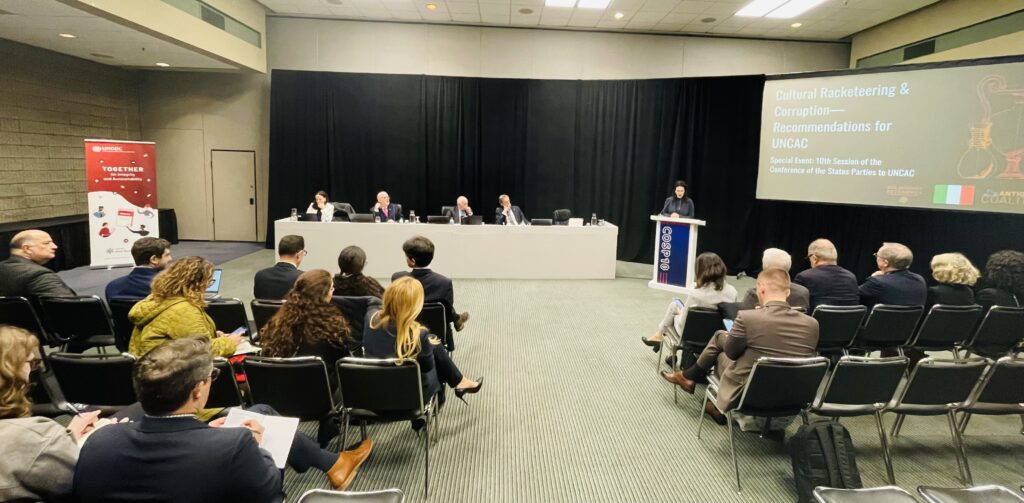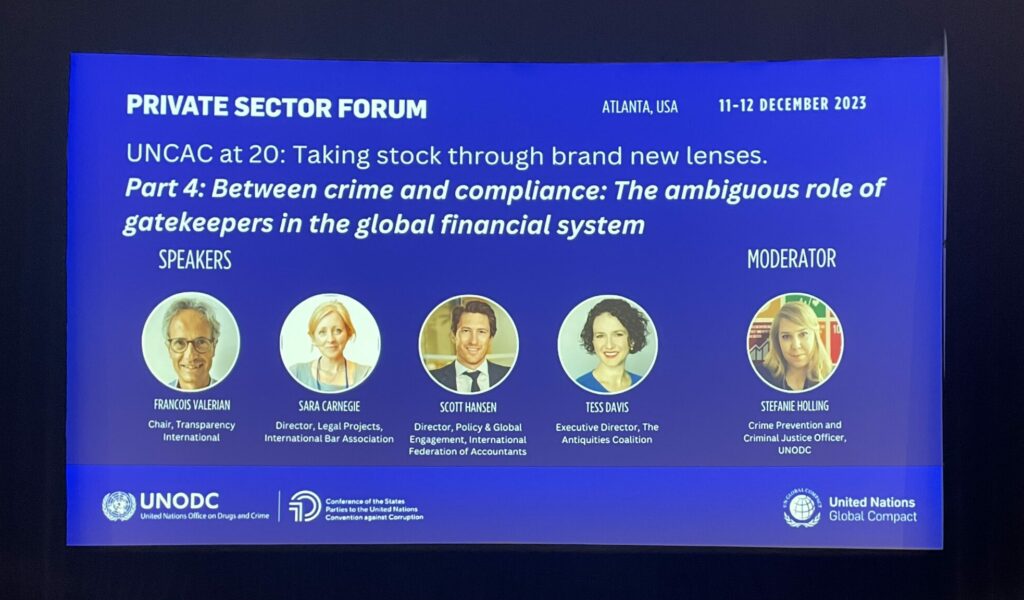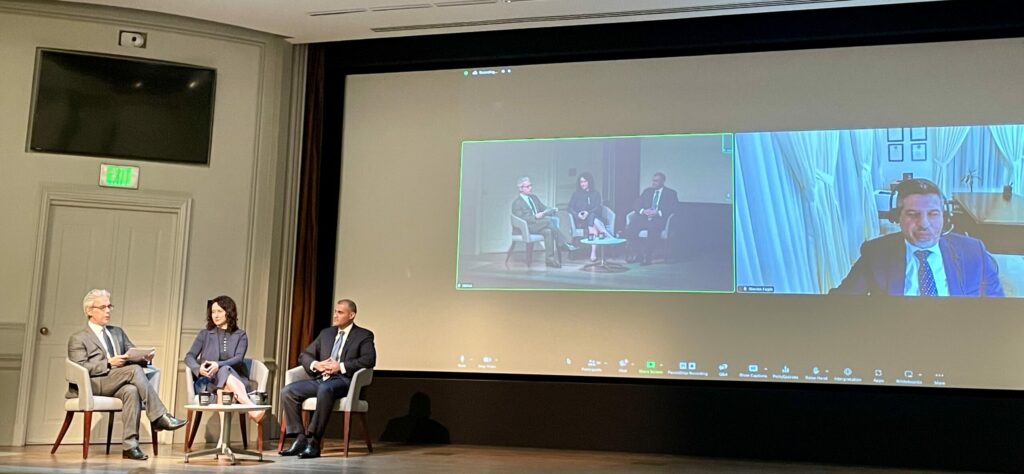AC Joins Global Leaders Seeking Solutions at the 10th UNCAC Conference of State Parties
The $67.8 billion dollar art market remains the largest unregulated market in the world. The multi-billion dollar scale, the unique nature of art itself, and opaque business practices make this market susceptible to a wide range of criminal activity, including fraud, forgery, tax evasion, trafficking, money laundering, sanctions evasion, and terrorist financing.
In order to effectively address these crimes, it is crucial to recognize and address the role of corruption. Recent cases have shown the full extent of how corruption undermines laws and their enforcement, ensures the art market stays unregulated, and helps criminals to escape arrest, conviction, and effective punishment.
Despite this, there has been a glaring lack of attention on the international stage regarding the connections between cultural racketeering and corruption, leaving a critical gap in efforts to combat these pervasive criminal activities within the art market.

On December 11-12, 2023, the Antiquities Coalition brought this topic to a global audience at the 10th session of the Conference of the States Parties (CoSP10) to the United Nations Convention Against Corruption (UNCAC), a forum that brings the international community together in the prevention and fight against corruption.
The AC was proud to co-host a session as part of the special events program at CoSP10, “Cultural Racketeering & Corruption—Recommendations for UNCAC,” with the Italian Republic, the United Mexican States, and the United Nations Office on Drugs and Crime (UNODC), which was attended by over 50 participants from the convention.
The session was opened by His Excellency Carlo Nordio, the Minister of Justice of the Italian Republic, a strong signal of his country’s commitment to this issue. Additional participants included: Melanie Chabert, Associate Crime Prevention and Criminal Justice Officer with the Corruption and Economic Crime Branch of UNODC, Ambassador Javier Díaz de León of the Mexican Foreign Service, and Justice Luigi Marini, who serves on the highest court in Italy and dedicates his work to protecting cultural heritage.
The event outlined the close connection between illicit trade and the forces that facilitate it. Tess Davis, Antiquities Coalition Executive Director, elaborated on this dynamic: “Cultural racketeering would not be possible without corruption. Tackling the linked issues of corruption and cultural racketeering requires working across industries, the public and private sectors, and national borders.” Participants discussed this issue in the broad context of UNCAC, how UNODC is suited to tackle these interlinked problems, and showcased those facing this issue head-on.

The AC also participated in the Private Sector Forum, “The United Nations Convention Against Corruption at 20: Uniting Leaders for Business Integrity.” Davis joined the session “Between Crime and Compliance: The Ambiguous Role of Gatekeepers in the Global Financial System” where she emphasized how art and antiquities crimes could only succeed with the complicity of those within the art market—like archaeologists, conservators, and dealers – and those who provide ancillary services—like bankers, lawyers, and accountants.
Despite their strategic position that allows for preventing or interrupting illicit financial flows, these intermediaries often enable the behavior of bad actors, allowing them to thrive and take advantage of this unregulated market.
Davis also highlighted how corrupt actors can range from soldiers, guards, customs agents, police, and prosecutors to “legal persons”—galleries, auction houses, other corporations, and unfortunately even not-for-profit institutions like museums. Additionally, any framework put in place needs to be on a parallel track with political leaders and elites having the will to resist utilizing organized crimes to their benefit.
The Antiquities Coalition would like to thank the UNODC and our esteemed partners for highlighting the importance of regulating the art market in the fight against corruption. The AC is committed to working not just with organizations dedicated to preserving culture, but also with organizations like the UNODC to combat looting and better safeguard cultural heritage across the globe.










